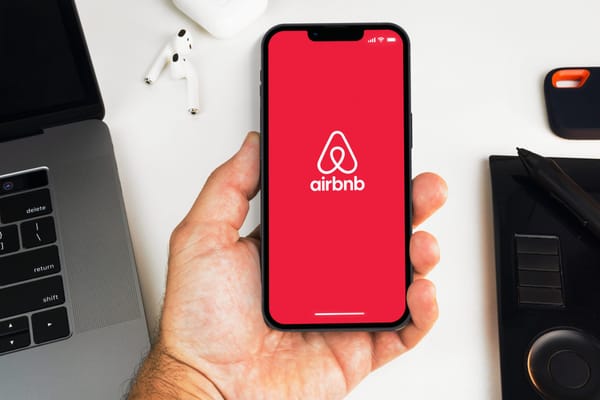Key Rules for Renting a Room in Your House and Earning Extra Income

Many people have a spare room and want to earn extra income by renting it out. This can be a very effective financial strategy, helping to offset mortgage payments. put some money on the side or use rental income for future investments, maybe in real estate.
The point is that you don't need to own an entire property to start earning rental income. In this article, you'll learn the rules for renting out a room in your house, including legal requirements, permits, taxes, and other legal implications, as well as the concrete steps for setting up and renting your unused space.
This article also covers the differences between short-term and long-term room rental models so you can decide which is a better fit for your needs.

What Do I Need to Know Before Renting a Room in My House?
Renting out a room is not the same as having a roommate. Once you start charging rent, the room is considered a rental unit, and the person staying there becomes a tenant with legal rights. As a landlord, you must follow landlord-tenant laws, which protect renters and outline your responsibilities.
You’ll also need to screen potential tenants, conduct background and credit checks, and verify their rental history to ensure they’re a good fit. A written lease agreement is necessary, as it sets clear expectations for rent payments, house rules, and other terms of the rental.
If you plan to rent your room on Airbnb or another short-term rental platform that allows shared spaces, the process is different. Instead of a tenant, you’ll be hosting short-term guests, which may require permits, following zoning laws, and compliance with local regulations. Some cities require you to register as a short-term rental host.
The good news is that, even in cities with strict Airbnb regulations, renting out a room in your primary residence is typically permitted. These "hosted rentals" make it easier to comply with local laws in urban areas than renting out an entire house as a short-term rental.
You’ll also need to manage the day-to-day responsibilities. You’ll need to establish clear house rules, manage cleaning between guests, handle maintenance, and maintain a positive relationship with guests.

Legal Requirements
By renting out a room, you become a landlord or a host. It means you need to follow some legal requirements and possibly have a lease agreement signed with the tenant. Let's break them down one by one.
Local Zoning Laws and Permits
City zoning laws and local zoning laws govern how property can be used or rented in certain geographic areas. Zoning laws are especially important for short-term rentals because certain neighborhoods or zones may not permit STRs at all, but long-term tenants are allowed.
Some places only allow STRs if the property is your primary residence, which means you can rent out a room without a problem. However, local authorities may ask hosts to register their rental, obtain a permit, or even renew their license periodically.
In San Francisco, if you rent out the entire unit while you’re away, there’s a 90-day annual limit. If you’re only renting out a bedroom while you remain present, there’s no restriction on the number of nights you can rent it out per year. That's how room renting can be a way to get around strict Airbnb regulations.
Besides, in certain areas, like Washington, D.C., landlords must obtain a business license to rent out property, even for long-term leases.
Reporting Rental Income
Rental income is considered taxable, whether you choose a short-term or long-term rental model, and must be reported to the IRS using Form 1040, Schedule E. However, landlords can take advantage of various tax deductions to reduce their taxable income.
Deductible expenses may include cleaning and maintenance fees, costs of supplies, mortgage interest, property insurance, service fees from platforms like Airbnb, marketing expenses, utilities (water, gas, electricity), and repair costs.
Keeping detailed records of these expenses is essential to ensure compliance and maximize deductions when filing taxes. Always check with a tax professional for specific guidelines.
Room Rental Lease Agreements and Contracts
A landlord has an obligation to sign an agreement that outlines financial obligations like rent collection, amount, and payment dates with the tenant. This contract defines the lease terms and conditions for renewal or termination.
Airbnb allows hosts to require guests to sign a rental agreement, but it's not mandatory. If you choose to implement one, you must disclose its terms in your listing description and communicate them before booking. Having a rental agreement can help clarify expectations and protect both parties.
This is especially important for monthly stays, as those stays are legally considered long-term renting, which means that landlord-tenant laws apply.
Landlord-Tenant Laws
Landlord-tenant laws protect renters and set clear responsibilities for landlords. Tenant rights include living in a safe, habitable space, protection against unfair evictions, and privacy from landlord entry without proper notice. Landlord responsibilities vary by state but generally require maintaining the property, handling repairs, and following lease agreements.
The Federal Fair Housing Act prohibits discrimination based on race, gender, disability, and other factors. State laws differ, with some states having stricter rent control, eviction protections, and security deposit rules. Understand local regulations to avoid legal issues.
Contact Your Insurance Provider
Rental properties need a special kind of insurance, which is not a standard homeowner’s insurance. Landlord insurance is designed to cover risks like property damage, liability claims, and lost rental income due to unforeseen events like fires or tenant-caused damage.
If you're renting a room in your home, you may need a rider or endorsement added to your existing policy, or an entirely new policy.
Short-term rentals often require special coverage since insurers view them as higher risk. Guest liability insurance helps if a paying guest is injured on your property and you’re found legally responsible. Theft and burglary coverage serves if a guest steals your personal belongings. Personal property insurance covers damage caused by guests. Finally, loss of income protection reimburses you if an event, like a fire or storm, makes your home unrentable.

Setting Up the Rental Space
You want to create a habitable living space in your room for rent. Renting out a room is simpler than house renting, still, you will prepare it for a tenant or guests.
Room for Rent: Short-term vs. Long-term Setup
Prepare a room for a tenant based on lease terms. If you state it is furnished, it should be so. Clarify in the lease whether utilities and Wi-Fi are included in rent or if the tenant pays separately.
For Airbnb guests, you may want to go the extra mile with decoration, toiletries, fresh towels, coffee, snacks, and maybe extra linens. Also, you might want to include a welcome guide, printed house rules, manuals with Wi-Fi details, appliance instructions, and local recommendations.
Essential Amenities
Prepare your room by providing most of these amenities:
- Comfortable Bed and Furniture (Bed, mattress, nightstand, wardrobe).
- Workspace
- Wi-Fi
- Smart TV and Streaming Access (Netflix, or other entertainment options).
- Heating and Cooling
- Secure Door Lock
- Bathroom Access (Private or shared)
- Laundry Room Access
- Kitchen Access
And some additional amenities for short-term rentals:
- Toiletries and Towels (Shampoo, soap, fresh towels, extra linens and a hairdryer)
- Coffee and Snacks (A coffee maker, tea, and small welcome snacks)
- Mini Fridge in the Room (Optional)
Privacy Requirements
Privacy is essential when renting a room to tenants and short-term guests. Landlords should respect personal space by not entering the rented room without permission and ensuring tenants have secure access, such as a lock and key. Clear house rules outline shared space usage, quiet hours, and visitor policies.
Hidden cameras in private areas are strictly prohibited, but you can equip a bedroom with a smoke detector for security. Transparency about shared spaces and privacy expectations creates a comfortable and professional rental experience.

Finding and Screening Tenants
Finding tenants or guests, tenant screening and a credit and background check are important activities because they directly impact the profitability, safety, and sustainability of your rental business.
Create a Rental Listing
Promoting your property on renting platforms starts with creating a listing. Follow these tips to create a standout listing:
- Clearly mention it's a shared space in the first line
- Detail your lifestyle, routines, and expectations for shared living
- Highlight house rules, quiet hours, and kitchen/bathroom sharing arrangements
- Include well-lit photos of the private bedroom and all shared spaces
- Include neighborhood amenities within walking distance
- Address pet policies, smoking rules, and guest limitations
Promoting a Property as a Landlord
Landlords can promote their property on rental listing sites like Zillow and Trulia. Social media provides powerful ways to find tenants through groups targeting specific areas or neighborhood-specific communities.
Traditional methods remain effective, such as yard signs attracting drive-by traffic and pedestrians, word-of-mouth marketing, and referrals.
Listing a Room On Airbnb
First, you need to find a platform that supports renting rooms. Listing a room on Airbnb offers unique advantages as the platform supports shared space rentals. They started out as a room-sharing platform and support it to this date. When creating your listing, clearly communicate which areas are private versus common spaces to prevent misunderstandings.
Screening Tenants and Background Check
Running a background and credit check helps assess financial reliability and identify potential red flags, like past evictions or criminal history. Besides, landlords need to perform it anyway, so better establish your screening criteria. Some of the criteria will be income level, rental history, and credit score.
On Airbnb, background checks are not a priority. However, you can decline a guest based on their profile, bad reviews, or bad communication if you estimate there might be problems.
Signing a Rental Agreement
A room rental agreement is a legally binding contract addressing the conditions of renting a single room within a larger property. It defines the tenant's private space versus common areas, outlines shared utility arrangements, establishes kitchen and bathroom access rules, and clarifies guest policies. Most room rentals require a minimum lease period, which could range from three months to a year on average.
The agreement becomes a legally binding contract once signed by all parties. This means it creates enforceable obligations for both the landlord and tenant. Signing a lease is also desirable for mid-term rentals (monthly stays) to avoid the danger of squatters and a lengthy eviction process.

Pricing Your Rental
How do you determine a competitive rent price for a room? Pricing plays a major role in generating revenue, but several factors influence the final amount.
Determining Rent Price
Rental rates are based on demand, market trends, and property value. It depends on whether a room is newly furnished and renovated or not.
To determine the best price for your room, do market research and competitor analysis to understand pricing benchmarks. Compare room prices in the neighborhood and check out peoples' opinions by posting your listing on social.
Short-term vs. Long-term Pricing Models
The prices of a rented room range from a few hundred bucks to more than $1,200 a month in certain urban areas.
On Airbnb, this number depends on the occupancy and nightly rates. Generally speaking, there should be higher income from short-term renting. Airbnb pricing strategy is dynamic, and you will need to make seasonal adjustments depending on the market demand and guest turnover.
If you're curious about how much hosts make for a room, study historical data on your competitors' nightly rates and occupancy rates from previous months.
Additional Fees and Payments
When renting out your property on Airbnb, adding extra fees is often necessary. The most common is the cleaning fee, which is charged separately from the nightly rate. Cleaning fees typically range from $25 to $150, depending on the size of the space. The average cleaning fee in the U.S. for a private/shared room on Airbnb is around $48 per stay, according to AirDNA.
Security deposits help protect against potential damages and encourage guests to treat your space respectfully. While they are more common for long-term rentals, they can also be applied to Airbnb stays.
You might also charge extra fees for additional guests beyond your base occupancy or late check-outs and early check-ins. Just keep in mind that while these fees increase income, excessive upfront charges can deter guests and lower your occupancy rate.
Landlords sometimes implement late fees for overdue payments, ensuring timely rent collection and discouraging delays. For long-term rentals, utilities can either be included in the rent or split based on usage, depending on your agreement with the tenant.

Room Rental Management
Managing your rental involves daily tasks like cleaning, repairs, and maintaining good relationships with tenants or guests. After all, you’ll be sharing your living space with them.
House Rules for Great Communication
The landlord-tenant relationship begins with clearly defining house rules. In a shared living space, aligning expectations with tenants is even more important.
A property owner should outline these rules in the rental contract and may also provide a printed copy or store them digitally in a tenant portal.
The same applies to Airbnb. Establishing house rules upfront helps set guest expectations and ensures compliance. Guests must accept these rules before they hit the "book" button, and once people agree to certain terms, they are more likely to follow them throughout their stay.
Maintenance
The advantage of renting out a room in your primary residence is that you’re already on-site for maintenance. You don’t have to travel to a separate rental property, and much of the maintenance is work you would be doing anyway, so it isn’t considered an additional expense.
Renting on Airbnb requires hosts to manage frequent guest turnover. The key question is: Will you handle the cleaning yourself or hire a cleaner?
If you choose to clean the space yourself, consider the time commitment and whether you can consistently maintain high standards between bookings. Regular maintenance tasks include cleaning, restocking essentials, checking for damages, and addressing minor repairs.
Collecting Rent
There are multiple ways to pay rent, but what has become increasingly popular are tenant portals. A tenant portal is a digital platform where tenants can view payment history, due dates, and set up recurring payments. Portals are usually provided by PMS software. These tools can also charge late fees as a consequence of missed payments.
On Airbnb, hosts receive an automatic payment after a guest checks in. Maintain digital or physical records of payments for tax and legal purposes. When discussing software solutions to automate the work, bear in mind some PMS are designed for landlords, while others, such as iGMS, are designed for Airbnb hosts.
Handling Conflicts and Eviction Process
When renting out a room, interpersonal relationships are on the line. If any conflict happens, it's important to stay professional and refer to the lease or rental agreement to clarify any rights and responsibilities of both parties.
A legally binding document serves as protection, helping to resolve disputes before they escalate. It’s also crucial to keep written records of all communications and agreements related to the conflict, as they can serve as evidence if legal action occurs.
According to the law, eviction should be the last option, and it should be applied only when other solutions fail. The eviction process is highly regulated and varies by state. Before proceeding, landlords must provide written notice, giving the tenant an opportunity to correct the issue. If the problem persists, legal eviction may proceed through the court system.
Is Your State Tenant-Friendly or Landlord-Friendly?
In every state, landlord-tenant laws differ, and some states are more tenant-friendly, meaning they tend to favor tenants in disputes. For instance, California and New York have strict eviction protections, requiring extended notice periods and following strict eviction rules.
On the other hand, states like Florida and Texas are considered landlord-friendly because they have a quicker eviction process, making it easier for landlords to regain possession of their property. Knowing your state’s laws will help you handle conflicts more smoothly and avoid any surprises down the road.

Which is Better: Long-Term or Short-Term Room Rentals?
You might be weighing the pros and cons of long-term versus short-term renting. Both options are valid, and the choice ultimately depends on your preferences and circumstances.
Let’s take a closer look at both sides.
Pros and Cons of Long-term Room Renting
If you decide to have a tenant live in your bedroom, be sure to do a thorough background check and set up a meeting before making your decision.
Pros
Stable, predictable income with consistent monthly payments
You really get to know your tenant and maybe even establish a friendship
Lower turnover costs
Less frequent vacancy periods
Cons
Higher stakes decision when selecting a tenant - you'll be sharing space for months or years
Less flexibility to reclaim the space for personal use or family visits when you need it.
Potential for roommate conflicts
Income ceiling and reduced ability to increase rates compared to short-term rentals
Pros and Cons of Short-term Room Renting
If you decide to do Airbnb, meeting STR guests from diverse backgrounds and tourists can be very enjoyable. They will likely spend their days exploring the city, so you may not see them very often.
However, managing an Airbnb requires a greater level of commitment.
Pros
Higher-income potential
Flexibility to block dates for personal use when needed
Less emotional investment with temporary guests
Opportunity to meet diverse people from different backgrounds
Rate adjustments possible based on seasons, events, and demand
Easy exit strategy if you decide to stop renting
Cons
More labor-intensive management with frequent turnovers
Cleaning is necessary after each guest
Inconsistent income with seasonal fluctuations
More demanding availability requirements for check-ins and guest assistance

Cash In on Your Spare Room
If you choose the second option, renting out your spare room on Airbnb, rest assured that iGMS has your back when you’re ready to get more serious about the short-term rental business. This tool takes care of the daily grind, such as guest communication and team tasks.
More automation means less hands-on effort, higher passive income, and more time to enjoy the things you love.






